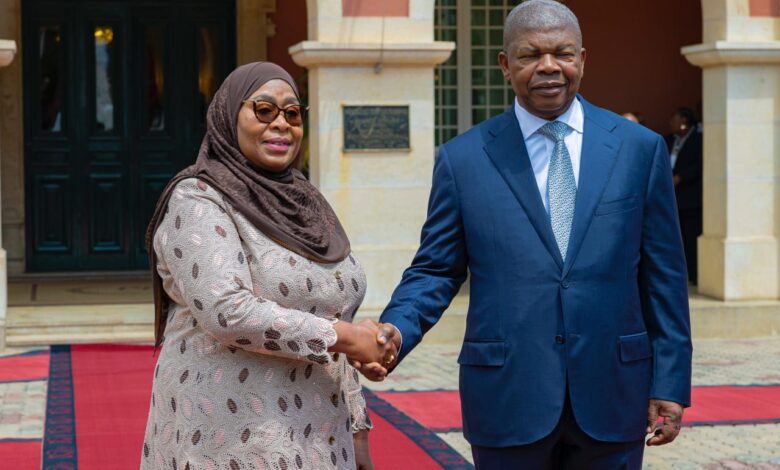International
Tanzania and Angola Strengthen Bilateral Relations with New Agreements on Trade and Security

Tanzania and Angola have taken significant steps to deepen their bilateral relationship with new agreements aimed at enhancing cooperation in trade and security. The development was announced following high-level talks between officials from both countries held in Dar es Salaam on April 10, 2025.
The discussions were led by Tanzanian President Samia Suluhu Hassan and Angolan President João Lourenço, who is on an official state visit to Tanzania. The visit marks a renewed commitment by both nations to expand diplomatic, economic, and strategic ties.
During the bilateral meeting, the two leaders signed several memoranda of understanding (MoUs), focusing on key areas including trade facilitation, defense cooperation, and joint infrastructure projects. The agreements are expected to serve as a framework for sustained collaboration between the two Southern African Development Community (SADC) member states.
President Samia Suluhu Hassan emphasized the importance of fostering stronger economic relations between the two countries, noting that regional cooperation is vital for boosting industrial growth, cross-border trade, and investment. She stated that the new agreements would create opportunities for Tanzanian and Angolan businesses to explore untapped markets and build strategic partnerships.
President Lourenço echoed similar sentiments, stressing the need for African nations to work together in achieving economic independence and regional security. He highlighted Angola’s interest in strengthening its presence in East Africa through collaborative ventures and improved trade logistics.
Among the specific initiatives discussed was the creation of a bilateral trade commission that will oversee the implementation of commercial agreements and resolve any trade-related disputes. The two countries also agreed to explore the possibility of establishing a direct shipping route to enhance the movement of goods between the Indian Ocean port of Dar es Salaam and the Atlantic ports of Angola.
In the area of security, both leaders underscored the need for greater collaboration in combating transnational threats such as terrorism, arms trafficking, and organized crime. They pledged to increase intelligence sharing and coordinate on regional peacekeeping efforts, particularly through SADC frameworks.
The defense cooperation agreement includes plans for joint military training, exchange programs, and technical assistance. Military officials from both sides have been tasked with outlining operational guidelines and implementation strategies in the coming months.
Tanzania and Angola also expressed mutual interest in energy cooperation, particularly in oil and gas exploration, given Angola’s vast petroleum resources and Tanzania’s growing natural gas sector. Discussions are ongoing about potential joint ventures in refining and energy infrastructure.
In a joint press briefing following the talks, both presidents reaffirmed their commitment to pan-African unity and the promotion of intra-African trade. They called on other African nations to invest in strengthening regional blocs and reducing dependence on external markets.
The meeting concluded with a state banquet in honor of President Lourenço, attended by top Tanzanian government officials, business leaders, and members of the diplomatic corps. The Angolan delegation is also scheduled to meet with Tanzanian ministers responsible for trade, energy, and defense to further explore partnership opportunities.
Observers have described the visit as a significant milestone in Tanzania-Angola relations, with the potential to shift the dynamics of regional cooperation in southern and eastern Africa. Both nations are seen as emerging powers within their respective regions and have pledged to use their influence to advocate for economic integration and sustainable development across the continent.
The agreements signed this week are expected to be followed by a series of technical meetings to develop action plans and timelines. Both governments have committed to reviewing progress through regular bilateral consultations.
